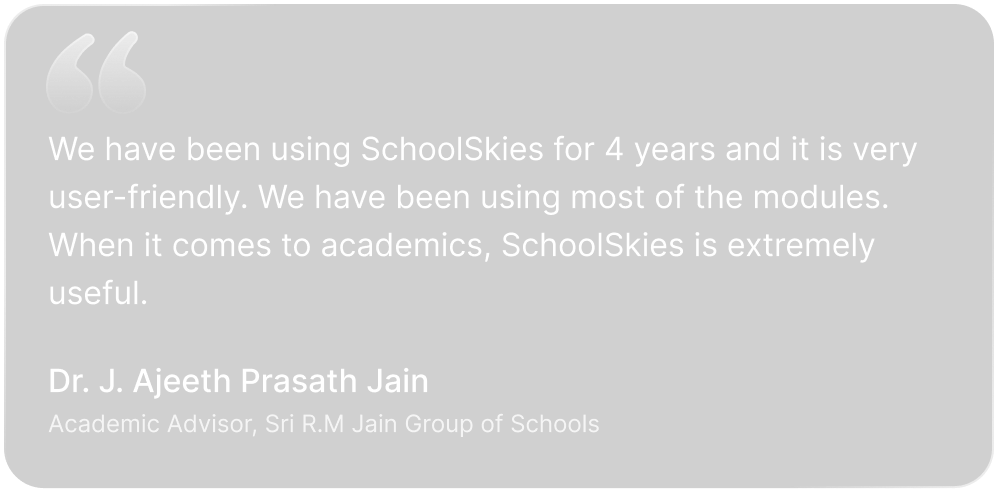Start Your Free
Trial Now


In the ever-evolving landscape of education, the traditional methods of school administration are undergoing a profound transformation. As schools adapt to the digital age, the integration of School Enterprise Resource Planning (ERP) systems is emerging as a game-changer. These comprehensive platforms are revolutionizing the way educational institutions manage their administrative tasks, fostering efficiency, transparency, and collaboration. In this blog post, we explore the future of school administration through the lens of School ERP systems.
School ERP systems serve as a centralized hub for all administrative tasks, consolidating functions such as student enrollment, attendance tracking, grade management, and communication within a unified platform. This streamlining of processes reduces manual workload, minimizes errors, and empowers administrators to focus on strategic decision-making.
One of the key advantages of School ERP systems is the facilitation of seamless communication and collaboration among stakeholders. Teachers, parents, students, and administrators can access real-time information, share updates, and communicate efficiently, fostering a more connected and engaged educational community.
The future of school administration lies in harnessing the power of data to inform decision-making. School ERP systems generate actionable insights by analyzing data related to student performance, attendance patterns, and administrative processes. This data-driven approach empowers educators and administrators to make informed decisions that positively impact student outcomes.
School ERP systems contribute to the realization of personalized learning by providing educators with a comprehensive view of each student's academic journey. From tracking individual progress to identifying areas for improvement, these platforms enable teachers to tailor their instructional strategies to meet the unique needs of each student.
In the future of school administration, parental involvement is recognized as a crucial element for student success. School ERP systems facilitate increased parental engagement by providing easy access to grades, attendance records, and communication channels. Parents can stay actively involved in their child's education, fostering a collaborative partnership between home and school.
As technology continues to advance, School ERP systems are poised to evolve with it. Integrations with emerging technologies hold the potential to further enhance the capabilities of these platforms, providing even more sophisticated insights and functionalities.
The future of school administration is not confined by geographical boundaries. School ERP systems, with cloud-based solutions, offer global accessibility and flexibility. This ensures that stakeholders can access the platform from anywhere, facilitating remote learning, international collaborations, and a more inclusive educational environment.
School ERP systems enable continuous improvement by collecting and analyzing feedback from various stakeholders. This feedback loop allows administrators to identify areas for enhancement, respond to the evolving needs of the educational community, and continuously refine the system for optimal performance.
As schools navigate the future of education, the integration of School ERP systems emerges as a pivotal factor in shaping the landscape of school administration. These platforms not only streamline processes and enhance communication but also pave the way for data-driven decision-making and personalized learning experiences. The future of school administration is undoubtedly digital, collaborative, and focused on creating an environment that fosters the holistic development of every student. School ERP systems are at the forefront of this transformative journey, unlocking new possibilities for educational excellence.